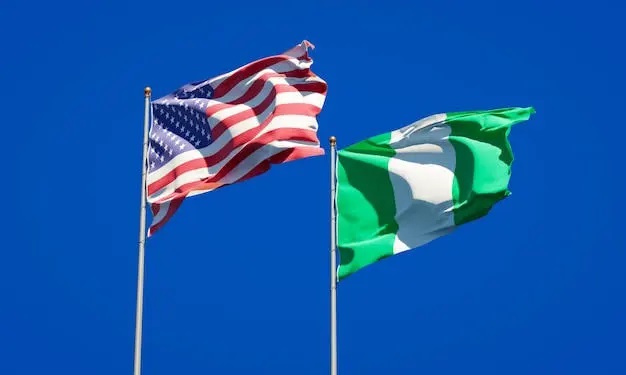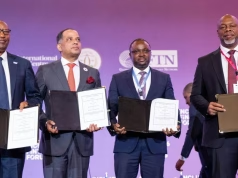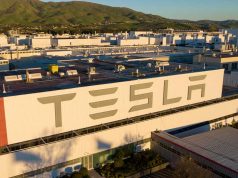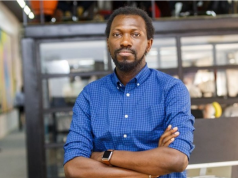Tensions are rising between the United States and Nigeria following President Donald Trump’s announcement that Nigeria will face an additional 10% tariff due to its recent inclusion in BRICS — a group he claims promotes “anti-American policies.” This development marks a new challenge for Nigeria joining BRICS and US trade relations.
President Trump made the statement via his Truth Social platform on Sunday, warning that any country aligning with BRICS would be subject to punitive tariffs without exception. The move has sparked fresh concerns over global trade stability and comes as BRICS leaders gather in Rio de Janeiro for their annual summit.
BRICS — originally composed of Brazil, Russia, India, China, and South Africa — has expanded to include Saudi Arabia, Egypt, UAE, Ethiopia, Indonesia, and Iran. Nigeria officially joined as a partner country on January 17, 2025, becoming the ninth nation to receive this status. Other partner countries include Belarus, Bolivia, Cuba, Kazakhstan, Malaysia, Thailand, Uganda, and Uzbekistan.
The U.S. president did not specify which BRICS policies he considers anti-American. However, the bloc appeared to push back against his stance in a joint statement released Sunday, condemning “unjustified unilateral protectionist measures,” including indiscriminate reciprocal tariffs.
BRICS leaders warned that such actions threaten global economic stability and deepen inequality among nations, describing them as inconsistent with World Trade Organization (WTO) rules.
Meanwhile, Nigerian President Bola Tinubu used the summit to reaffirm Nigeria’s commitment to BRICS and the Global South alliance. In a speech delivered through his spokesperson, Bayo Onanuga, Tinubu emphasized Nigeria’s role in shaping global discourse on climate change, environmental justice, and healthcare equity.
“Africa has contributed the least to global emissions but suffers the most,” he said, calling for greater international cooperation on sustainable development and fair access to financing.
Tinubu also highlighted the importance of youth inclusion, climate action, and regional collaboration, outlining Nigeria’s strategic priorities under Vision 2050 and its nationally determined contributions.
“We must not be passive participants in global decision-making,” he stated. “We are taking bold steps to accelerate renewable energy adoption, mainstream climate action, and champion South-South cooperation.”
His remarks underscored Nigeria’s belief that the BRICS bloc should serve not only as an economic force but also as a platform for equitable solutions rooted in solidarity and shared prosperity.
What does this mean for Nigeria joining BRICS and U.S. trade ties?
The Trump administration confirmed that previously announced tariffs will take effect starting August 1st, rather than July 9th, giving some countries more time to negotiate exemptions. The 90-day pause on these tariffs ends this week, increasing uncertainty for global markets.
As BRICS continues to expand its influence, member states aim to reshape international governance by amplifying the voices of emerging economies. The group positions itself as a counterbalance to Western-dominated institutions and seeks greater representation in global finance, trade, and diplomacy.
With Nigeria joining BRICS and US tensions escalating, the evolving geopolitical landscape could significantly impact investment flows, trade agreements, and Nigeria’s economic positioning on the world stage.

























